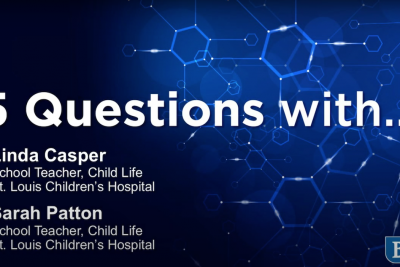It’s that time of the year kids are returning to school or starting school for the first time. Most children are excited about school and cope well with the transition from the relaxed days of summer break to their busy school schedules. For some, the start of school can induce anxiety and vague physical symptoms.
School phobia (known to professionals as school refusal) is a complex and extreme form of anxiety about going to school (but not of the school itself). It can cause considerable missed school days and a variety of anxiety-related physical symptoms such as headaches, stomachaches, nausea, vomiting, diarrhea, tiredness, dizziness, shaking, and frequent trips to the toilet. These symptoms mainly occur in the morning and often worsen when it’s time to leave for school. The child otherwise seems healthy and vigorous. The diagnosis must be confirmed by a physician.
School refusal occurs in about 1-2% of children and is commonly addressed by pediatricians. Younger children (up to age 7 or 8) can experience separation anxiety and often show reluctance to separate from their care giver. Older children (8 and older) are more likely to experience symptoms of social phobia and demonstrate fear of unfamiliar or possibly humiliating environment and anxiety about performance in school.
Causes for school phobia are mostly age-dependent. First-time school-goers may be extremely anxious about being separated from their care givers all day. This sudden change can make them anxious and trigger separation anxiety. They are also probably not used to having an entire day organized for them and may be very tired by the end of the day, causing further stress and making them vulnerable to school phobia. For older children possible triggers for school phobia may include:
1. Moving to a new school and having to make new friends.
2. Being off from school for a long time due to an illness or a holiday.
3. Problems at home such as illness, bereavement of a person or pet, domestic violence, marital rows, separation or divorce.
4. Not having good friends at school or fear of being ‘unpopular’.
5. Traumatic experience at school such as abuse, rape or having witnessed a tragic event.
6. Fear about academic failure.
7. About 75% of children with school refusal symptoms suffer from clinical and subclinical depressive symptoms in addition to anxiety.
Helping your child overcome school phobia typically requires parent management or even family therapy. Working with school personnel is always indicated as these anxious children often require special attention from teachers, counselors, or school nurses. Typically, parents who are coached to calmly send their children to school and reward the child for each completed day of school will be successful. It is also helpful to:
1. Talk with your child about school fears. Reassure your child and explain that these fears are brought on by thoughts that may not be true. Tell her you love her and you are proud of her for being brave.
2. Insist on immediate return to school. Be optimistic with your child and reassure her that she will feel better after she gets to school.
3. Be extra firm on school mornings. In the beginning, morning time may be a difficult time. If your child is physically well enough to be up and around the house, then he is well enough to go to school.
4. Find things that your child can look forward to each day at school or at the end of a school day.
5. If physical symptoms are concerning, have your child seen by your pediatrician promptly.
6. Help your child spend more time with age-mates. School phobic children tend to spend more time with parents, play indoors, or be alone in their rooms. Encourage your child to join clubs or athletic teams, and spend time with peers.
Referral to a Child and Adolescent mental health professional may be necessary if interventions at home and school are not helping your child overcome school refusal symptoms. The longer school phobia goes on, the harder it is to treat. Younger children with recent onset symptoms have a good outcome. Adolescents with gradual onset of symptoms and significant physical symptoms may require long term counseling and treatment.
Uncategorized • Aug 24, 2010
Does your child have school phobia?
Comments
Comments are closed.





I have an online 5th-12th grade school
We offer courses that can be modified to meet a students’ IEP or 504 Plan
We also have a full high school curriculum written on a 4th grade reading level
Please let me know if there is any interest in learning more